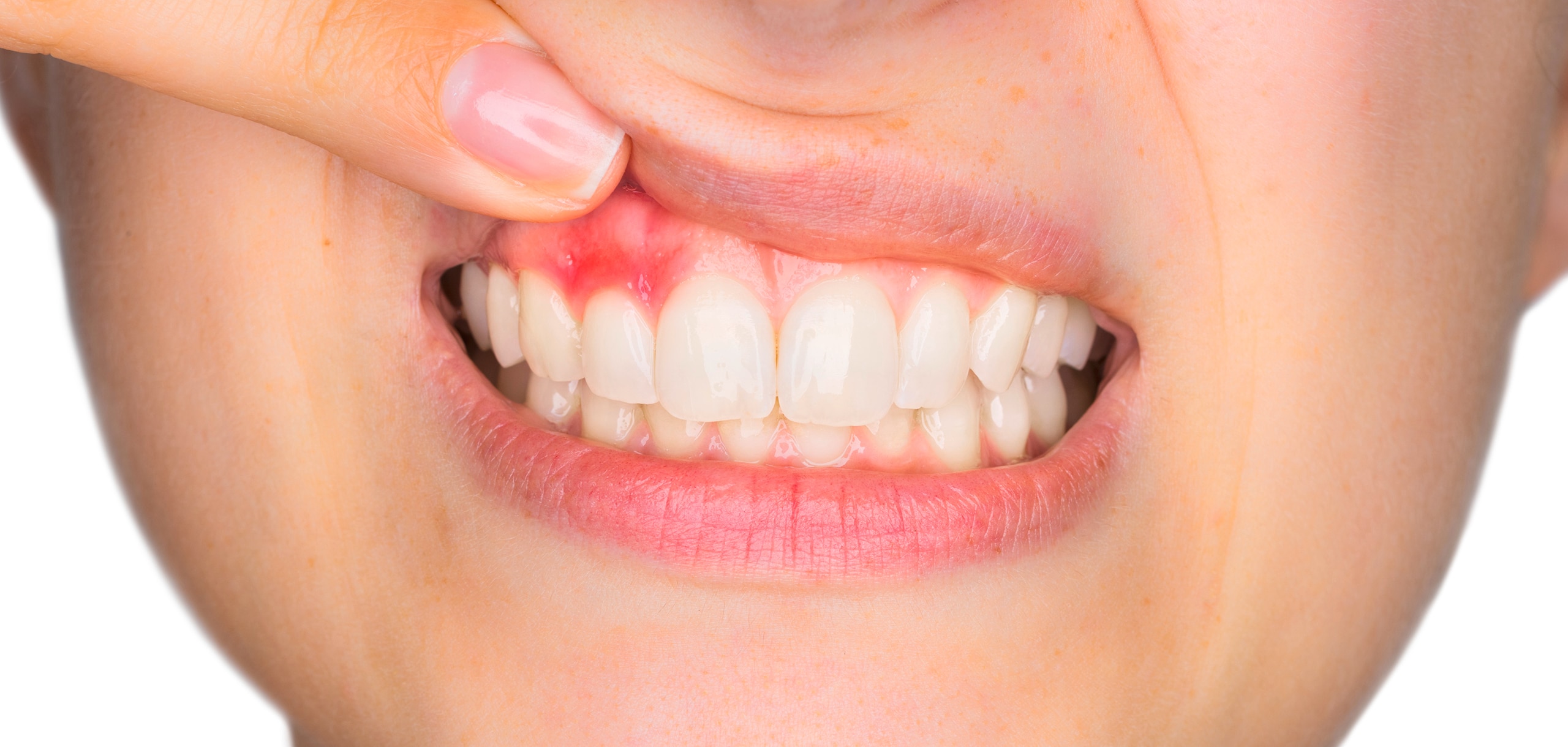What is gingivitis and what causes it
Gingivitis – an inflammation of the gums – is caused by plaque that builds up and irritates the gum line. The earliest stage of gum disease, gingivitis can be reversed before it turns into periodontal disease, so be vigilant and look out for the symptoms, such as reddish, tender, bleeding and receding gums, and bad breath.
If your gums bleed every time you brush your teeth, you should book an appointment with your dentist, as you might need a professional dental cleaning to remove hardened plaque that has turned into tartar. You might wonder what causes this very common health problem, so let’s have a look at some of the main reasons:
Changes in health with ageing
Even though gum disease affects the general population, it is more prevalent among the elderly. Statistics show that 70 per cent of people over 65 years are suffering either from a minor form of gum disease or the more serious periodontal disease. Growing older is a natural part of life, and it comes with its difficulties, but there’s no reason why you can’t maintain a healthy lifestyle as you age. Stick with a good dental care routine in your early years to avoid gum disease as you get older.
If you’re a smoker, you should try and quit – you will prevent potential health issues, including dental problems, and enjoy a fuller life in your later years.
The effects of family genetics
Sadly, some of the dental health issues some of us go through cannot be avoided, as they’re part of our genetic make-up. You could still get gingivitis even if you observe a good oral care routine. But don’t let that discourage you: talk to your dentist, as they’ll be able to give you advice that’s specific to you and provide treatment options. It’s possible to achieve good oral health once you know the underlying causes and follow your doctor’s advice.
Oral side effects of medication
When you visit your dentist, let them know if you’re taking any medication. It will help them give you a proper diagnosis and prescription, especially if you have a medical condition, such as heart disease, hypertension, diabetes or arthritis. Certain drugs have side effects, which can lead to dental problems.
Some of the most common oral side effects are:
- Dry mouth (xerostomia): Saliva prevents infections by regulating bacteria in the mouth, but certain drugs slow down the production of saliva, leading to dry mouth, which affects gum health. Your dentist may prescribe you a medication that stimulates saliva flow.
- Abnormal bleeding: Aspirin and anticoagulants (also known as blood thinners) prevent blood clots, to reduce the risk of stroke in heart patients, but they can also cause your gums to bleed. If you’re taking blood thinners, you should let your dentist know so they can control the bleeding during oral surgery.
- Mouth sores: Certain medications prescribed for blood pressure control and oral contraceptives can inflame the soft tissue in the mouth. Ask your dentist if they can prescribe you a hygiene plan to ease the side effects.
As you can see, the causes for gingivitis vary. Mostly it’s the result of plaque build-up and sometimes it’s related to wider health issues, but whatever the reason there’s always a solution – just make sure you visit your dentist regularly, and don’t forget to brush, floss, rinse and repeat!
QUICK TIP
Drink plenty of water after each meal; it washes away food debris and naturally prevents plaque build-up.
You May Also Like
RELATED PRODUCTS

Your Oral Care Questions
Find helpful advice on your oral health concerns in our guides created by Signal, the family dental expert








